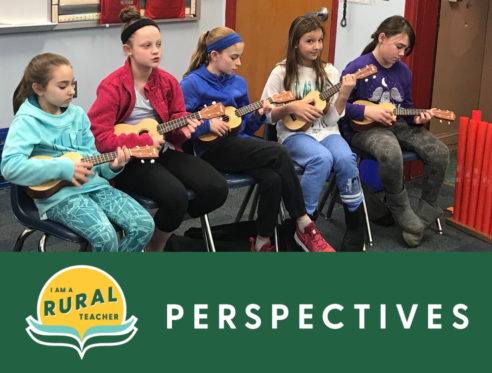I didn’t choose to teach in a rural school at first. Jobs were in short supply due to the 2008 market crash when I graduated college in 2010. I ended up working as a long term sub or for one year at a couple of schools before being laid off.
The advantage of this, in retrospect, was that I got to experience city, rural and suburban schools, experienced K-12, and taught instrumental, vocal, and classroom music. It was a crash course in music education that prepared me for anything.
When I found my current job in 2013, I assumed I would not be here long, not only due to recent history, but because I assumed I would want to teach in the suburbs.
However, my wife and I chose to stay. We realized how many perks there are to teaching in a rural district:
-When I taught in the city, class sizes could be 27. My class sizes are smaller, allowing me to know my kids better.
-The pressure that you can feel as a music teacher to have great concerts seems lighter in a small town. People know you, and they know how much time you devote to making their kids the best they can be.
-Flexibility! Teaching in the city, my classes were often predetermined. In the suburbs, they had “always done it this way”, and didn’t want to change. In a rural district, I have got to be creative with my lessons. I have taught a film composer unit, created a “Boomwhacker Club”, and arranged music for my choir from video games.
Lastly, I grew up in a small town. As a result, I can relate to what my students need. With limited resources compared to larger schools, what they need is for teachers to care and give more of their time, and I’m happy to do it!




